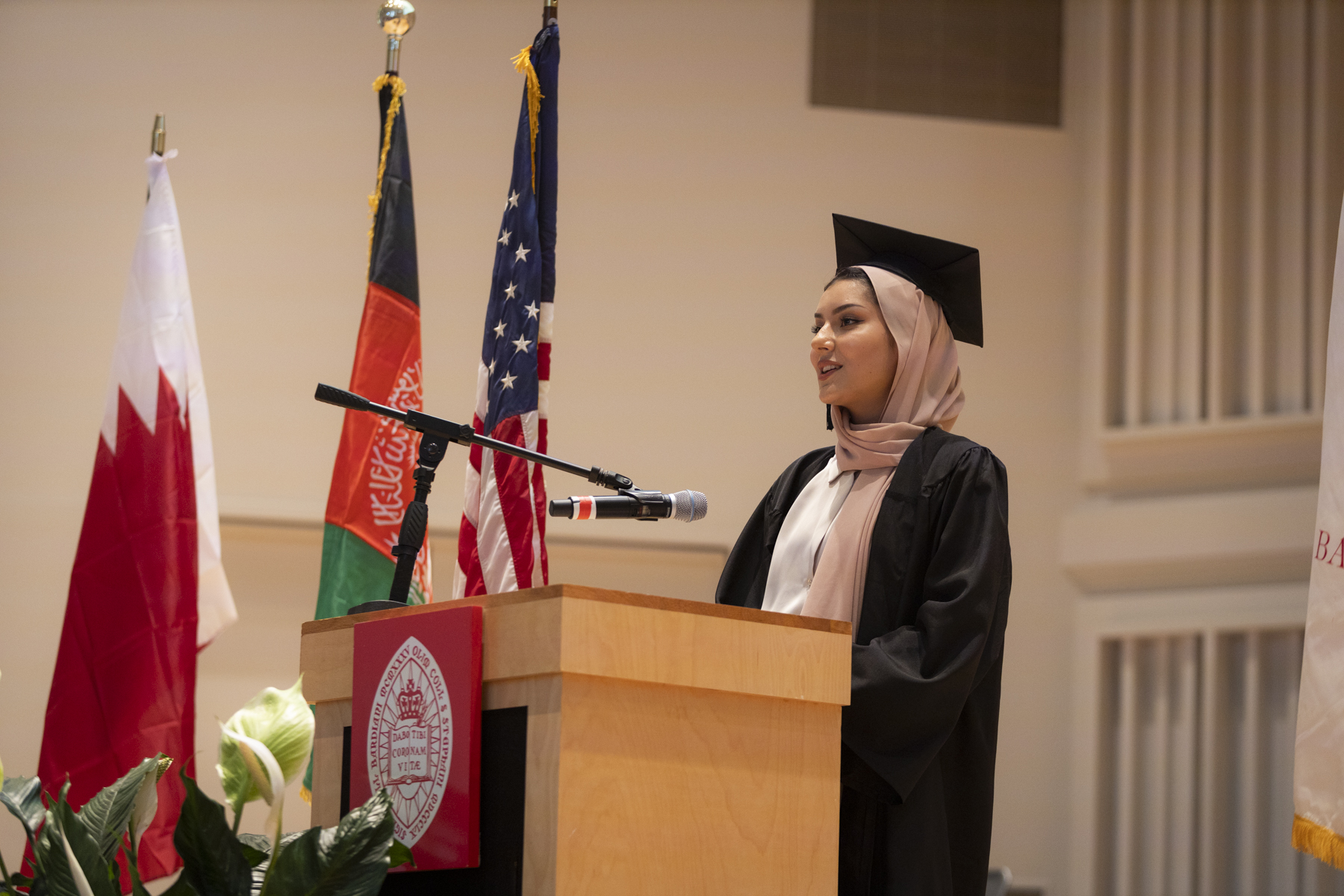The QASP enables Afghan students to enrol in arts, business, sciences, humanities, and the social sciences programmes.
Education Above All (EAA) Foundation and the Qatar Fund for Development (QFFD) has celebrated the graduation of 25 Afghan refugee students from Bard College in New York, supported by a Qatari grant.
According to Doha’s state news agency (QNA), the graduation took place on Monday and marked the first group of 250 recipients of the Qatar Scholarship for Afghans Project (QASP).
Launched in 2022, the project is a partnership between the Qatari entities in addition to: the U.S.-based Institute of International Education (IIE); the Afghan Future Fund; Schmidt Futures; the Yalda Hakim Foundation; and the Rockefeller Philanthropy Advisers Fund.
The Afghan refugees came from different countries they were forced to flee to during the start of the Taliban’s August 2021 takeover of Kabul, such as northern Iraq, Kyrgyzstan and Albania.
Talal Al Hothal, the director of the Al Fakhoora Programme at EAA, noted that the Qatari-led programme “leverages strategic international partnerships” to empower the students.
“Our programme leverages strategic international partnerships to amplify the impact of our scholarships, and these collaborations have made it possible for us to offer Afghan students many opportunities for advancement, innovation, and success,” Al Hothal said.
Jonah Kokodyniak, IIE’s Executive Vice President, said the graduation marked “a huge accomplishment” for the Afghan refugees.
“Not only have they overcome significant adversity to earn their degrees, but they have made numerous contributions to their university communities and are poised to take on future leadership positions,” Kokodyniak explained.
The scholarship programme covers more than 40 colleges and universities in more than 17 states, including Rutgers University, Bard College, and the University of Texas at Austin among others.
The QASP enables the students to enrol in arts, business, sciences, humanities, and the social sciences programmes.
Under a separate initiative showcasing its dedication to safeguarding the right to education, Qatar had welcomed the ‘Afghan Dreamers,’ an all-girls robotics team, shortly after the Taliban assumed control.
The robotics team was among at least 80,000 Afghans and foreigners that Qatar evacuated in what became known as the largest airlift of people in history.
Taliban ban on education for girls
The Taliban’s takeover of Kabul marked the beginning of the introduction of restrictive policies on women and girls’ education and right to work.
The policies were implemented despite the Taliban’s promise of a more moderate rule in comparison to their previous one, which lasted between 1996 until the beginning of the U.S.-led invasion in 2001.
Just days after the Taliban came to power in 2021, the entity’s spokesperson Suhail Shaheen told Doha News that Afghan girls and women are allowed to work and attend schools as long as they wore the hijab.
Within months, the Taliban tightened their restrictions on the daily life of all women under a governance approach that is reminiscent of their former rule.
This eventually culminated in the March 2022 decision by the Taliban to ban girls from going to school on the day the institutions reopened. Girls who had shown enthusiasm for the new school year were turned away and forced to go home.
At the time, Qatar had expressed its “great concern and disappointment” at the decision.
In an interview with CNBC Middle East in January 2023, Qatar’s current prime minister, Sheikh Mohammed bin Abdulrahman Al Thani, vowed to stand with Afghan women.
Sheikh Mohammed said Qatar has been reaching out to the interim government to understand the rationale behind the restrictive policies towards women and girls.
The top Qatari official noted that Doha could not see such policies rationalised from either a religious or cultural perspective, and confirmed his country’s involvement in consultations with other Muslim nations to “deal” with the situation.
Addressing Afghan women directly in the interview, Sheikh Mohammed said Qatar will remain by their side.
“They will prevail as they’ve been prevailing before. We will stand with them, we will support them. We will not exert any effort in order to make sure that we are helpful for them and to make sure that these kinds of decisions are not happening,” Sheikh Mohammed said.
Qatar has hosted the Taliban’s political office under Washington’s request since 2013 to help facilitate dialogue with the West.
Doha also hosted the intra-Afghan talks between Afghanistan’s former government and the Taliban in 2020 in an effort to reach a political solution.
During the same year, it held talks between the U.S. and the Taliban, where the Doha agreement was signed.







